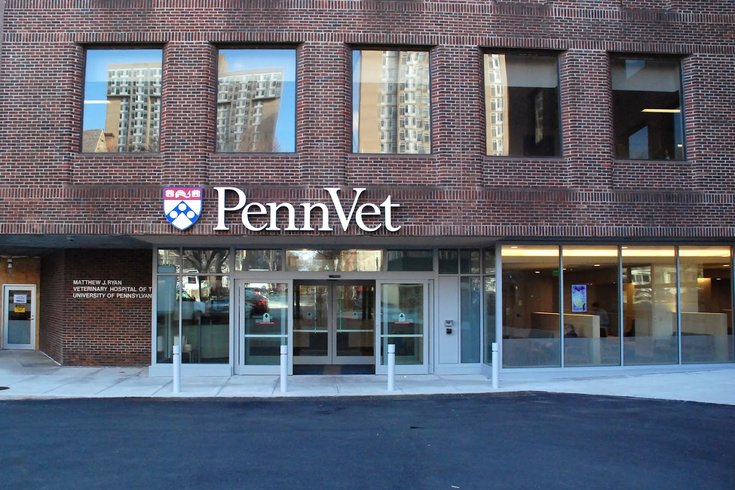
December 14, 2023
 Provided Image/Google Maps
Provided Image/Google Maps
Penn Vet, which has a location at 3800 Spruce St. (above), was denied funding by the Pennsylvania House of Representatives following controversy surrounding a recent congressional testimony involving former Penn president Liz Magill.
The fallout from former University of Pennsylvania president Liz Magill's controversial congressional hearing continues, this time in the Pennsylvania House of Representatives. A fairly standard and traditionally bipartisan appropriations bill for the university's veterinary school failed to pass.
House Bill 613 would have given $31,660,000 to Penn Vet and $1,893,000 to the school's Center for Infectious Diseases. The bill required two-thirds of the House to pass but fell short by two votes on Wednesday night; the first vote had a count of 124 yeas and 79 nays, and the second vote ended at 127-76.
All House Democrats voted in favor of the bill while most House Republicans voted against it. Speaking on the floor, Republican leader Bryan Cutler said more action should be taken against antisemitism on Penn's campus before more funding goes to the school.
Magill resigned from her position as Penn's president on Saturday after her responses during a congressional testimony regarding antisemitism on college campuses garnered widespread criticism. Earlier this week, Penn appointed J. Larry Jameson as interim president. Rep. Cutler called Magill's ouster "a first step in tackling antisemitism in our college campuses."
Cutler acknowledged the importance of Penn Vet to House Republicans, as Penn Vet's Matthew J. Ryan Hospital is named after the late Republican leader and former Speaker of the Pennsylvania House. In terms of concrete steps House Republicans want Penn to take, Cutler cited a package of bills that would make financial support contingent on a clear definition of antisemitism in the university's code of conduct.
"Until more is done at the university in terms of rooting out, calling out and making an official stance on antisemitism being against the values of the university," Cutler said, "I cannot in good conscience support this funding."
PhillyVoice reached out to Penn Vet for comment on the matter. "We are deeply disappointed in last night’s vote in the Pennsylvania House of Representatives," wrote Penn Vet Chief Communications Officer Martin J. Hackett to PhillyVoice. "The School of Veterinary Medicine (Penn Vet) is the sole beneficiary of these funds, and the school has continued to fulfill its educational and service missions to the Commonwealth in good faith throughout this six-month impasse, as it has for over 139 years."
"The school is a vital part of Pennsylvania’s agriculture industry: educating the next generation of Pennsylvania’s veterinarians, which is currently facing workforce shortages; providing world class clinical care to Pennsylvania’s agricultural communities, companion animals, working dogs, and wildlife; administering diagnostic testing services to maximize farm productivity and profitability, and food safety; offering surveillance programs to protect our food supply against devastating diseases such as highly pathogenic avian influenza; as well as our important role in disaster management," Hackett continued. "We hope the state House will reconsider this vote when it reconvenes in 2024."
Near the end of Magill's tenure as university president, Penn established an antisemitism task force led by Mark S. Wolff, the dean of the university's School of Dental Medicine, as well as an action plan to combat antisemitism. Penn is one of seven U.S. schools under investigation by the U.S. Department of Education for complaints about antisemitism and potential civil rights violations that have occurred on campus.